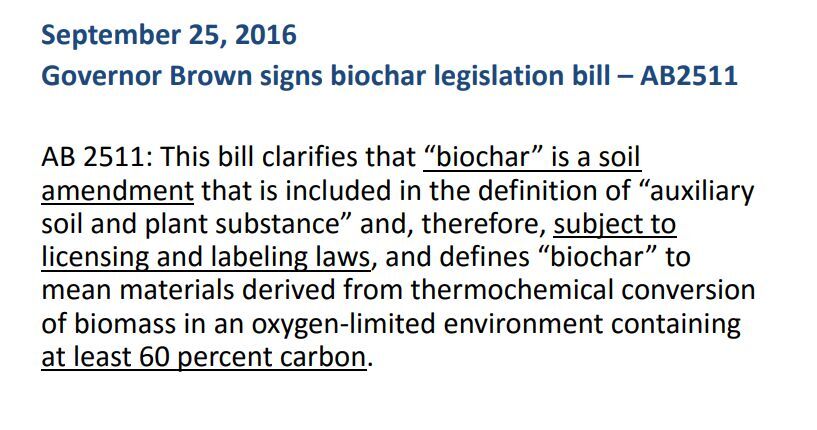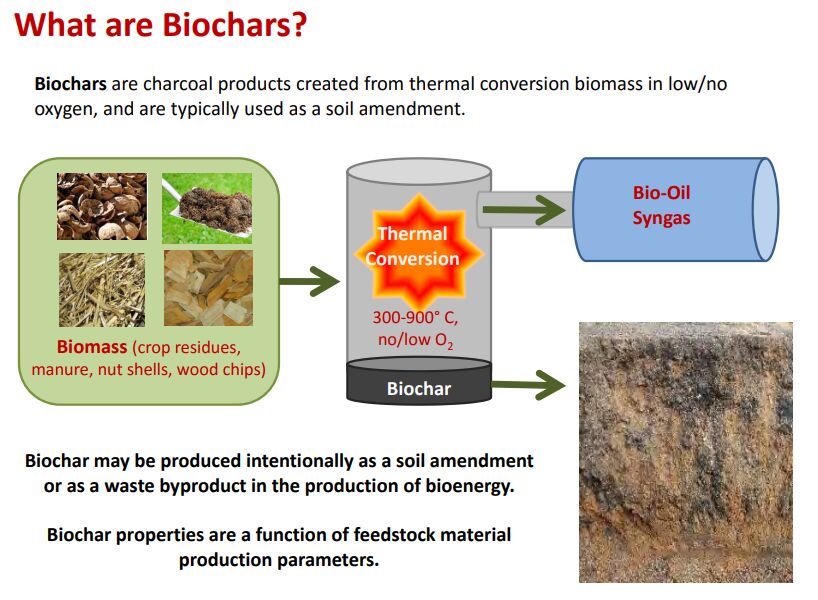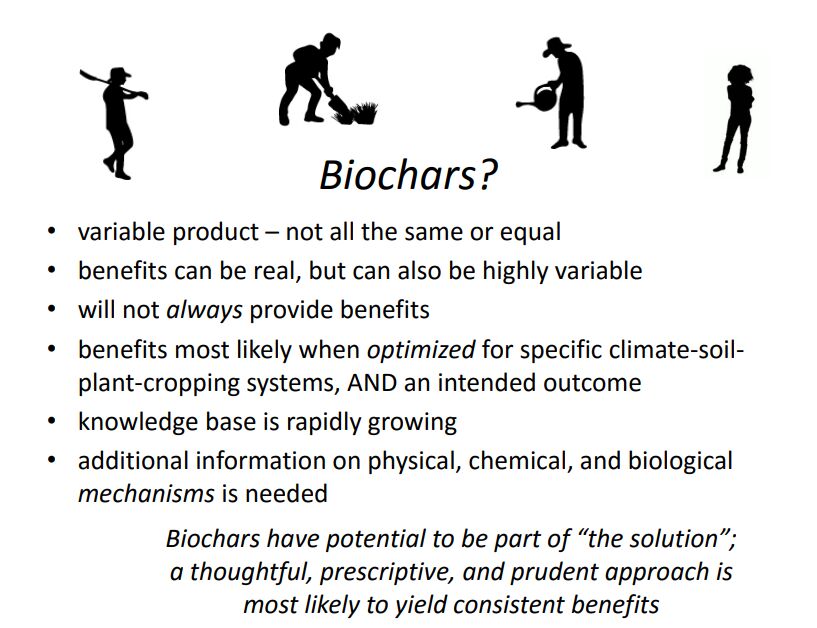Image

AB2511 was introduced in February and passed both the State Assembly & Senate, September 13th with no opposing votes.

The lucrative potential for BioChar providers, in California alone, to pursue contracts by municipalities could skew the reality, feasibility, and other factors. A ResearchGate study points out the largest incentive for industries currently penalized for many aspects of their existence, CARBON CREDITS. "As the industry evolves, rewarding carbon credits, increasing awareness and improving production processes are expected to help commercialize biochar."
According to the CA Dept of Food & Agriculture website: "Biochars are charcoal products created from thermal conversion biomass in low/no oxygen,and are typically used as a soil amendment."

Contrast the area in South America (not the Alphabet company) the Amazon and its "Terra Preta de Indio" dark earth of the Indians . Most information online about Terra Preta is presented by BioChar companies and proponents of this new soil enrichment.
Most likely the acceleration of interest came via Wim Sombroek, of Heiloo Netherlands was awarded a Ph.D. in 1963 on the thesis ‘Amazon Soils’; as a renown published book it was based on his work in Belem, Brazel. Prior to his death in 2003, the World Bank-financed a project on ecological-economic zoning, during which time he developed a fascination of the Terra Preta dos Indios and published details about his findings.
Does the potential in business using BioChar take into factor the length of time involved in TerraPreta enrichment of the soil, was it permanent? Conversely, residents of an area burned out by a forest fire or covered by volcanic ash will often remark of the short-term benefit observed in subsequent years of accelerated or prolific vegetation growth.
Yet, James Bruges in his book "Bio Char Debate" suggests "only by making large amounts of charcoal and burying it is there any hope for the planet." And this seems to be the direction California chooses rather than considering a broader base of enriching the soil.

While Vandan Shiva has been repeatedly quoted as saying "soils need living carbon as humus" which seems easy enough for a logical person to understand, she goes a step further and explains the biochar trend.
"Burning trees and biomass has ironically emerged as a “solution” to climate change. Following the false solution of industrial bio fuels we now have the waste left from production of bio fuels as the next magic bullet. The process used is pyrolysis – incineration that chemically decomposes organic materials by heat in the absence of oxygen. Through pyrolysis organic matter is transformed into gases and small quantities of liquid, used as bio fuels. The waste is a solid residue containing carbon and ash. This waste has now been given the elegant name “biochar”. It is being wrongly treated as the same as “Terra Preta de Indio” — the black soils created by the indigenous people of the Amazon by burying charcoal over hundreds of years. Charcoal in every soil and every ecosystem can prove to be an ecological disaster.
“Biochar” is basically the next new trick of global investors to make money on the global market of carbon trading. As the biochar website http://www.biochar.org clearly states “A prerequisite for the above mentioned management practices is access to the global carbon trade.” The global carbon market which has a potential to grow to $ 1 trillion by 2020, and this is what is driving “biochar” — not love for the soil, nor the wisdom of indigenous people."
So, while Los Angeles Dept of Public Works is looking into the feasibility of biochar; while the City Council has already mandated residents not put any kitchen waste in their trash but instead put it into the "green" vegetation bin for weekly pickup, it seems the trend is going towards putting more value (or cost) in trash but who benefits and who pays for the conversion of trash? And what is the fall out - plugged sewage (the city already has an overburdened infrastructure), rodents accessing the lucrative "green" bin for choice left-overs? Maybe incinerators will return?
Participation by the public or at the least listening-in-on the upcoming discussions might provide the city with a more diverse group of expertise at no cost!!!
2/18/22 Dept of Public Works addresses a $100k biochar feasibility plan.
Link to the meeting: https://www.lacity.org/government/follow-meetings/board-public-works-meetings